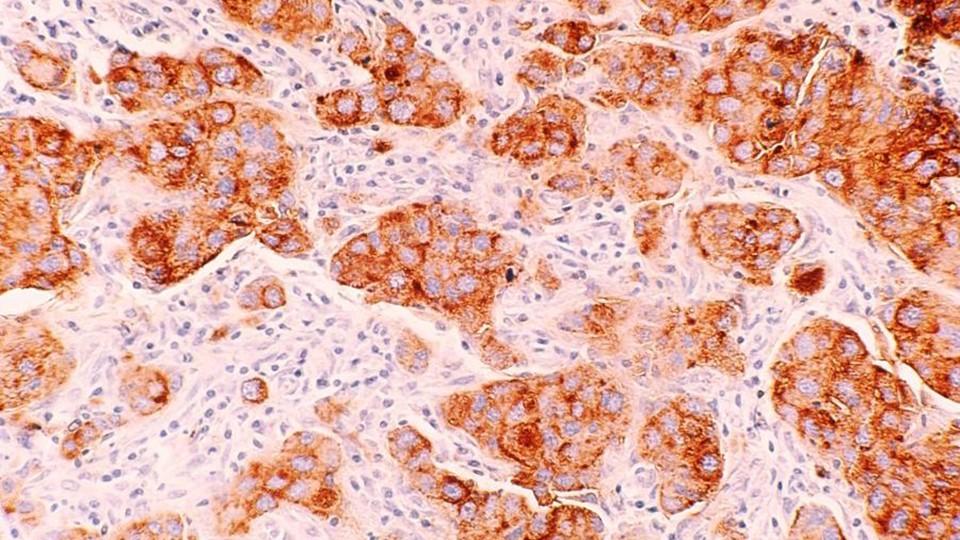First global approval for Daiichi Sankyo's Dato-DXd

Daiichi Sankyo has claimed approval in Japan, its home market, for TROP2-targeting antibody-drug conjugate (ADC) datopotamab deruxtecan (Dato-DXd).
It is the first global approval for the drug – which has been cleared under the Datroway brand name – with Japan's Ministry of Health, Labour and Welfare (MHLW) backing its use for patients with previously treated, unresectable, or recurrent HR-positive, HER2-negative breast cancer.
Datroway is the first TROP2-directed drug to reach the market in Japan for this type of cancer. It is also the second in the class after Gilead Sciences' ADC Trodelvy (sacituzumab govitecan), which was approved by the MHLW for the second-line treatment of triple-negative breast cancer (TNBC) in 2022 and got the go-ahead in previously untreated TNBC last month.
According to Daiichi Sankyo, breast cancer is the most common cancer in women in Japan, with around 92,000 cases per year, and around 70% of cases fall into the HR+/HER2- category.
"This first global approval of Datroway provides patients in Japan with […] a new alternative to conventional chemotherapy, which is often associated with poor response rates," commented Wataru Takasaki, senior advisor to Daiichi Sankyo.
Daiichi Sankyo originated Datroway and has exclusive ownership of the drug in Japan, but licensed co-development rights in other markets to AstraZeneca in 2020 for $1 billion upfront, plus up to $5 billion in regulatory and sales milestones. The two companies have also collaborated on the development and rollout of blockbuster HER2-directed ADC Enhertu (trastuzumab deruxtecan).
AZ and Daiichi Sankyo have filed for approval of Dato-DXd for this breast cancer indication in other world markets, including the US, Europe, and China, based on the results of the TROPION-Breast01 study, which revealed that patients treated with the ADC had a median progression-free survival (PFS) of 6.9 months compared to 4.9 months for those receiving chemotherapy, a 37% improvement.
The US FDA is due to deliver its verdict on the drug on or around 29th January, with the European Commission's decision expected shortly afterwards.
The Japanese label for the drug includes a warning for interstitial lung disease (ILD), which was seen in around 3% of the TROPION-Breast01 study and raised concerns about Dato-DXd's approvability during its development. Since then, new data has emerged suggesting that the risk of ILD – which can be fatal – can be managed with careful patient selection and care.
This first approval of Dato-DXd is a boost to Daiichi Sankyo and AZ, given that the path to market for the drug's second indication – locally advanced or metastatic non-squamous non-small cell lung cancer (NSCLC), with and without genomic alterations, who need systemic therapy after prior treatment – has been far less straightforward.
AZ and Daiichi Sankyo recently pulled their marketing applications for the drug in NSCLC in the US and EU after receiving feedback from regulators that the data from their pivotal TROPION-Lung01 study was unlikely to be considered strong enough to support regulatory approval.
In the US alone – so far, at least – the two companies have opted to refile Dato-DXd based on the phase 2 TROPION-Lung05 trial in a heavily pretreated group of EGFR-mutated NSCLC patients, which would be a much smaller patient population for the drug.
Ahead of the decision to pull the filings, Jefferies analysts said Dato-DXd had the potential to reach $9.4 billion in global peak sales, with $1.2 billion coming from the breast cancer indication. AZ has previously pinned a $5 billion peak sales target on the drug.












